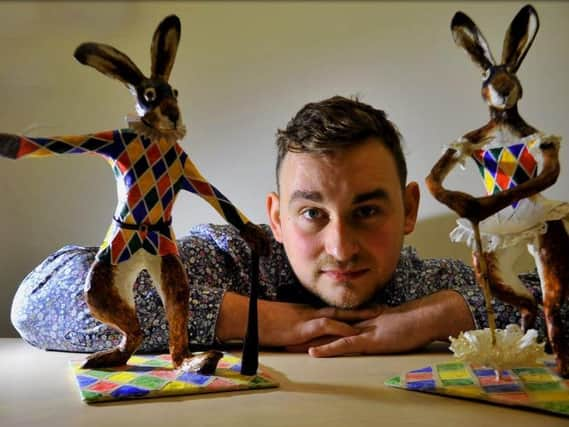Thirsk-based Rural Arts to play a 'vital role' in Yorkshire's pandemic recovery


Thirsk-based Rural Arts, which aims to enrich people’s lives, has worked with other arts organisations in North Yorkshire’s Action Towards Inclusion project.
Rural Arts usually provides more than 400 events and 70 performances around the county.
Advertisement
Hide AdAdvertisement
Hide AdHowever, it had to close its centre and cancel its touring schedule because of coronavirus.
Its Heart and Craft groups cater for some 1,200 older people who take part in arts activities at eight locations in the county.
Chief executive officer Max May said volunteer workers and those who attend its sessions have missed out on making social connections.
He said: “The work that we do is about providing social opportunity for people. Our mission is enriching lives and communities through the arts. A lot of the people that come to our sessions have been increasingly isolated during the pandemic.”
Advertisement
Hide AdAdvertisement
Hide AdWhile activity has moved online during the crisis, some older members do not have the necessary digital skills. Volunteers have missed out too as Rural Arts’ touring programme has been cancelled over recent months. It usually provides opportunities for 100 people, including volunteer promoters at about 70 events.
He said that the Government’s recent announcement of a culture support package is “important and very welcome” and the organisation’s community centre in Thirsk, the only one of its kind in North Yorkshire, is due to open next week.
He added: “We see ourselves as having a really, really vital role to play not only in bringing the visitor economy back but bringing back that community wellbeing and cohesion.”
Interest in future performances is “stronger than we anticipated,” he said, showing there is a hunger for people to be in the same room as each other.
He added: “Coming out of – or not even coming out of, in some places – really unprecedented times, the arts, in my opinion, is well placed to help us rebuild our lives.”